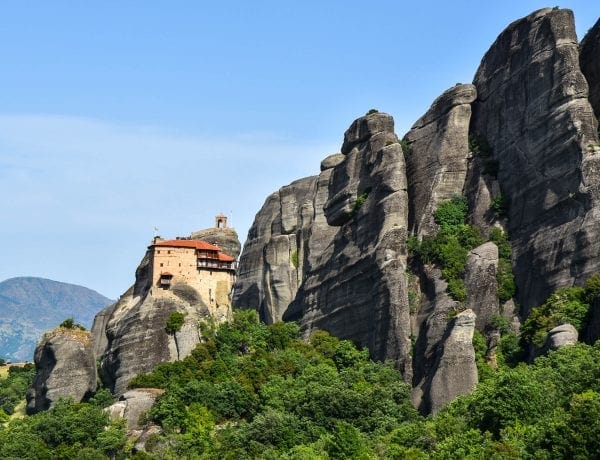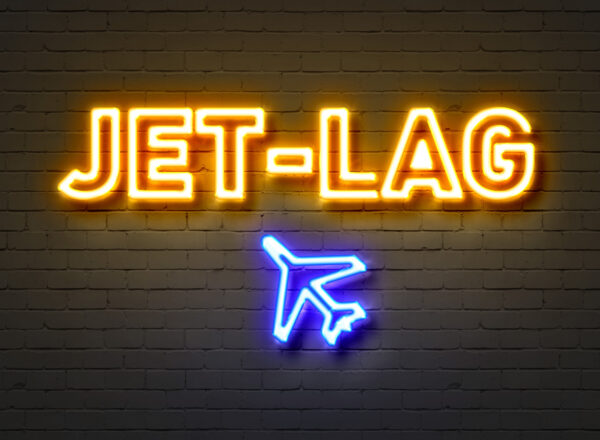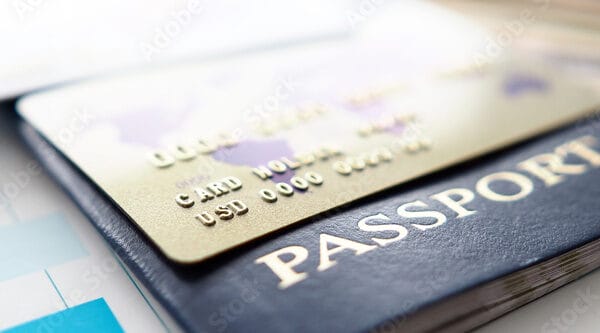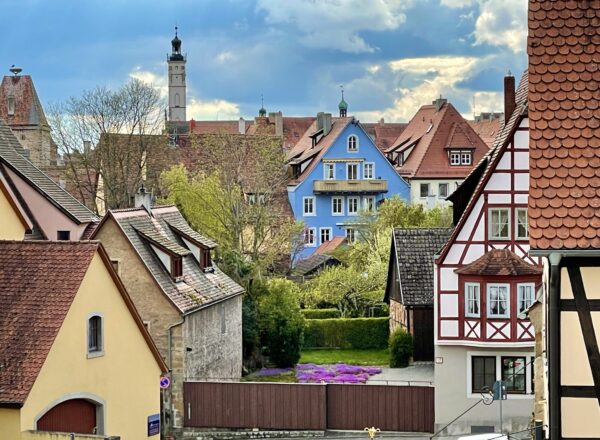Joelle Machia
“Travel is more than movement; it is the meeting point of humanity and responsibility.”
A Moment Beyond Words
On September 23, 2025, I had the extraordinary honor of speaking on sustainable tourism at a United Nations side event during the 80th session of the United Nations General Assembly in New York City. It isn’t easy to put into words what that experience meant to me. Standing inside the halls of the UN, a place where global decisions are made and lives can be changed through dialogue, was both humbling and transformative.
The event was hosted by the Permanent Observer Mission of Water and Sanitation for Africa (WSA) and focused on the theme “Science-Based Solutions for a Pact for the Sustainable Development Goals.” It brought together ministers, heads of state, scientists, business leaders, and international organizations, all working toward one shared mission: ensuring access to clean water and sanitation for every person on Earth.
As I listened to discussions about sustainability and equity, I felt the message resonate deeply with me. Before becoming a travel writer and sustainable tourism advocate, I spent decades as a nurse. I’ve cared for people at their most vulnerable. In that role, I learned that real progress always begins with compassion, collaboration, and accountability. Those same principles are at the heart of the United Nations’ work.
That day, I felt both the continuity and expansion of my life’s purpose: from healing individuals to helping heal our planet.
A Global Gathering of Hope

The United Nations during the General Assembly is a sight unlike any other; the energy is electric, the security is tight, and the sense of purpose palpable. Delegates bridge dozens of languages as they work together toward one truth: all our futures interconnect.
My business partner and fellow travel writer, Ryan, joined me for the event. It was his first time inside the UN, and like me, he was in awe of the diversity of voices and the seriousness of the moment. He later said that witnessing world leaders and scientists debating real, evidence-based solutions changed his perspective on his own work in sustainable tourism. Seeing the SDGs in action made everything we write about feel even more urgent and personal.
For both of us, being there reminded us that Wanderers Compass, our shared platform, isn’t just a travel blog. It’s part of a larger global conversation about how humanity moves through the world.
The Core of My Message on Sustainable Tourism

When I stepped to the podium (very nervous, to say the least), I wanted my words to reflect both experience and optimism. I spoke about how tourism, when managed responsibly, can serve as a connector of cultures, a driver of peace and prosperity, and a force for inclusive growth. Tourism is not simply leisure. It accounts for roughly 10 percent of global GDP and one in every ten jobs worldwide. That makes it one of the most powerful tools we have to promote sustainable development, but only if it’s done right.
In my remarks, I emphasized that tourism must be built with communities, not just for visitors. Too often, destinations are developed without considering the voices of those who live there. True sustainability requires empowering residents to shape the future of their own cultures and landscapes.
I also spoke on the importance of partnerships among governments, local leaders, businesses, and travelers to ensure that tourism benefits everyone. From Iceland, which balances visitor access with environmental protection, to Barcelona, which reimagined visitor management policies to protect neighborhoods, collaboration has proven essential. No single sector can do this alone.
Ultimately, I discussed innovation and accountability. Technology can help distribute tourism more evenly, guide travelers toward under-visited areas, and reduce pressure on fragile ecosystems. But technology must be paired with ethical frameworks, education, and measurable sustainability metrics that track progress. Without data and accountability, good intentions can fade into rhetoric.
These ideas of community inclusion, partnership, and transparency became the heart of my talk, and they remain central to my perspective on sustainable tourism today.
From the Nurse’s Perspective
As I spoke that day, I realized how much my former career in healthcare had shaped my perspective on sustainability. In medicine, every decision is about balance, preserving life, protecting systems, and preventing harm. The same is true in tourism. Each community, like a patient, has its own needs, strengths, and vulnerabilities. You can’t impose solutions; you must listen, assess, and collaborate.
In both nursing and sustainable tourism, the goal is to foster resilience. For individuals, it’s their physical and emotional well-being. For destinations, it’s their environmental and cultural vitality. Both require care, consistency, and compassion.
That connection between the personal and the global made the moment at the UN even more meaningful. I wasn’t just speaking as a travel writer; I was speaking as someone who has spent a lifetime caring for others and now feels called to help care for the planet.
Understanding the SDGs

The discussions at the UN revolved around the Sustainable Development Goals (SDGs), the United Nations’ blueprint for achieving a just and sustainable world by 2030. These 17 goals provide a framework for governments, businesses, and citizens to align their efforts toward shared outcomes.
Several of the SDGs are directly linked to sustainable tourism:
- SDG 6 – Clean Water and Sanitation: Clean water is fundamental to tourism and life itself. Resorts, cruise lines, and tour operators must manage water responsibly to protect communities and ecosystems.
- SDG 10 – Reduced Inequalities: Inclusive tourism helps narrow gaps by empowering marginalized groups and ensuring that local people, not just corporations, benefit from visitor spending.
- SDG 11 – Sustainable Cities and Communities: Urban destinations must strike a balance between visitor demand and resident livability, preserving culture and heritage in the process.
- SDG 12 – Responsible Consumption and Production: Encourages waste reduction, eco-friendly operations, and mindful consumer choices by travelers.
- SDG 15 – Life on Land: Protects biodiversity and cultural landscapes that are often the heart of tourism experiences.
- SDG 17 – Partnerships for the Goals: None of this works without collaboration, between nations, sectors, and individuals.
Ryan’s recent university research focused on these very goals, particularly how sustainable tourism contributes to environmental justice and community well-being. His research truly has given me even deeper insight into the mission of the United Nations. Seeing those ideas echoed by world leaders that day reinforced the power of shared frameworks, such as the SDGs.
Sustainable Tourism in Action
In my talk, I referenced examples from around the world that show sustainable tourism is achievable when planning, policy, and partnership align. Other notable examples include Costa Rica’s utilization of eco-lodges and renewable energy to conserve its rainforests while promoting economic growth. Slovenia’s Green Scheme certifies towns and hotels based on environmental and cultural criteria, creating an entire network of responsible destinations. Iceland carefully manages fragile landscapes with strict ecological standards and its “Inspired by Iceland” pledge, encouraging visitors to protect what they came to see. On Easter Island (Rapa Nui), visitors are now required to be accompanied by licensed local guides in sensitive archaeological zones. This effort safeguards the sacred Moai statues and ensures tourism benefits the Indigenous communities.
Each of these examples demonstrates that sustainable tourism isn’t about limiting experiences; it’s about redefining success, moving from quantity to quality, from profit to purpose.
Ryan’s Perspective and Shared Purpose

For Ryan, being at the United Nations was as impactful as it was for me. As someone who has written extensively about responsible travel, he said the experience shifted how he measures success. “It’s not just about writing articles,” he told me later. “It’s about contributing to a movement that values empathy as much as economics.”
That sentiment captured what I felt as well. The experience reminded us that our work with Wanderers Compass, sharing stories, conducting interviews, and producing our podcast, isn’t just about inspiration for travel. It’s about connecting people to places responsibly and using storytelling as a tool for education and change.
The Human Side of Policy
After my presentation, I spoke with several delegates about the human dimensions of tourism, the small details that policies can overlook. Travelers form emotional connections with destinations when hosts welcome them sincerely, and communities take pride when people honor their culture rather than commodifying it.
That’s why I proposed in my speech that we think beyond economic metrics. We need Community Inclusion Councils, structures that give residents a permanent voice in tourism planning. I also advocated for Partnership Pacts to unite governments, businesses, and civil society around shared goals. And most importantly, I suggested Sustainability Metrics that measure success not only by growth but by preservation, equity, and well-being.
These ideas weren’t theoretical; they were born from years of travel and firsthand observation, seeing the best and worst of tourism’s impact around the world.
Carrying the Message Forward

As the event concluded and Ryan and I stepped outside into the warm New York evening, the city hummed with activity. The motorcades, the lights, the flags all felt like the heartbeat of global cooperation. Yet amidst that energy, I felt calm and centered. I knew that speaking at the United Nations wasn’t the end of something; it was the beginning.
The experience reinforced everything we stand for at Wanderers Compass: that sustainable travel is not just a concept, it’s a responsibility. It’s about how we, as travelers, engage with the world, how we listen, learn, and give back.
Our mission moving forward is straightforward: to utilize our platform to promote responsible tourism, educate travelers, and celebrate communities that preserve their heritage and environment. Through our writing, podcast, and collaborations, we’ll continue to amplify this message.
In Closing

Speaking at the United Nations was one of the most profound experiences of my life. It reminded me that the spirit of caregiving that guided me through decades of nursing still guides me today, only now, my patient is the planet itself.
Tourism, at its best, is an act of empathy. It can strengthen understanding, uplift communities, and preserve the world’s beauty for future generations. However, it requires intention from governments, businesses, and travelers alike.
Our presentation may be over, but our work is just beginning. Together, through awareness and action, we can ensure that every journey brings the world a little closer, one respectful traveler, one mindful choice, and one sustainable step at a time.
Because in the end, whether we’re caring for a person or protecting a place, it’s all an act of love.
© 2026 Wanderers Compass All Rights Reserved
Below is my speech from the United Nations Side Event
Your Excellencies, distinguished delegates, and esteemed colleagues,
It is an honor to stand before you today to discuss the role of sustainable tourism in advancing our shared vision of inclusive growth and global cooperation. Tourism is far more than leisure or recreation; It represents 10 percent of global GDP and sustains one in every ten jobs worldwide. It is a vital driver of economies, a connector of cultures, and, when managed responsibly, a force for peace and prosperity.
Sustainable tourism represents a pathway to decent work and economic growth, particularly in developing countries where communities rely on tourism for their livelihoods. Yet, to achieve this potential, tourism must be designed not merely for visitors, but with the voices of local communities at its core.
Let us remember: in places like Venice, overtourism has sparked frustration, displacement, and cultural erosion. Compare this with Bhutan’s “high value, low impact” approach, where visitors are welcomed with deep respect for both culture and the environment. The difference lies in planning and inclusion. When communities are empowered, tourism strengthens identity instead of eroding it.
But sustainable tourism cannot succeed in isolation. Partnerships are indispensable. Governments, businesses, international organizations, technology providers, and travelers themselves must collaborate as equal stakeholders. Iceland has shown how engaging international experts alongside local leaders can diversify tourism offerings while protecting fragile ecosystems. Similarly, Barcelona’s visitor management reforms highlight how policy innovation can alleviate strain on local life while maintaining economic vitality.
Technology, too, offers solutions. Digital platforms can redistribute tourist flows, guiding travelers toward under-visited areas, reducing pressure on heritage sites, and promoting responsible behavior. However, technology must be paired with effective policy frameworks, comprehensive education, and robust monitoring systems to ensure accountability.
To build a future-ready model of tourism, I propose three actionable commitments:
-Community Inclusion Councils to give residents a permanent role in decision-making.
-Partnership Pacts between governments, businesses, and civil society to align economic, environmental, and cultural objectives.
-Sustainability Metrics to monitor progress, ensuring that growth does not come at the expense of people or the planet.
Excellencies, sustainable tourism is not just an economic question. It is a moral choice to honor the dignity of communities, to preserve our shared heritage, and to model collaboration in a divided world. At its best, it safeguards heritage, builds livelihoods, and fosters dialogue among people.
Let us move forward with unity, recognizing that every journey can either divide us further or bring us closer together. The responsibility and the opportunity are ours.
Thank you.
United Nations Photo Gallery

























Check out our most recent posts
Visiting Greece’s Meteora Monasteries
February 3, 2026Unveiling the Secrets of Malta: History, Beauty, and Resilience
February 1, 2026Best Travel Credit Cards in 2026
February 1, 2026Rothenburg ob der Tauber: A Detour Worth Taking
January 31, 2026Travel Through History at Bunratty Castle & Folk Park
January 12, 2026Want to learn the story behind Wanderers Compass?
Our Top Recommended Travel Products
Travel Insurance
Squaremouth.com
Our Favorite Travel Insurance Site!
We strongly advocate comprehensive travel insurance, not only for minor inconveniences but also for major, unexpected events such as medical emergencies. We never leave home without it. Our go-to resource is Squaremouth.com. which offers a user-friendly platform that connects you with top-rated, reputable insurance carriers. Plus, they’ll mediate on your behalf if you run into any issues.
To empower you as a consumer, we recommend you read our blog post on why travel insurance is essential and how to secure the best coverage from leading companies at an affordable price.
MedjetAssist
Medical transport back home from anywhere in the world
Medjet is a leading provider of global air medical transport. Unlike traditional travel insurance, which typically covers medical evacuation to the nearest facility, Medjet goes further by ensuring you’re transported back to the U.S. to the hospital of your choice once you’re stable enough to fly. Medjet offers membership plans that focus on medical transport, while Medjet Horizon provides expanded coverage for broader protection. Individual trip policies start at just $99, and annual policies are available for around $300. Most policies have an age limit of 74.
To learn more about how Medical Evacuation membership with Medjet Assist works, check out our blog post for a more detailed review.
Accommodations and Airfare
Booking.com
Hotels, Home rentals, BNBs, Flights, and other Transportation & Tours
Booking.com connects millions of travelers to unforgettable experiences, a wide range of transportation options, and incredible places to stay—from homes to hotels and beyond. As one of the world’s largest travel marketplaces, it supports well-known brands and entrepreneurs of all sizes. For its convenience, variety, and reliability, it’s our preferred booking platform.
Expedia and VRBO
Hotels, home rentals, BNBs, flights, and other transportation & tours
Expedia is a U.S.-based company with a mission to make global travel accessible to everyone, everywhere. At Wanderers Compass, we embrace independent travel, and platforms like Expedia are essential to making that a reality. Expedia allows you to book every aspect of your trip—from flights and accommodations to rental cars, cruises, and activities—making it a one-stop shop for all your travel needs.
Transportation
Daytrip
Personalized city-to-city private car transfer service
Daytrip provides an affordable private car service for city-to-city transfers worldwide, and we absolutely love their service. It’s a cost-effective alternative to renting a car, offering comfortable, stress-free travel with the added benefit of scenic stops along the way. For example, we used Daytrip for travel between Budapest and Vienna, enjoying some fantastic detours to local attractions. With professional drivers and customizable routes, Daytrip ensures a smooth ride while allowing you to explore hidden gems and unique sights along your journey.
To learn more about Daytrip, check out our blog post for a more detailed review.
Travel Experiences
Viator
The leading marketplace for travel experiences
Viator believes that travel is all about creating unforgettable memories. With over 300,000 experiences to choose from—ranging from simple tours to extreme adventures, plus a wide array of unique, niche activities—it’s never been easier to make lasting memories. We frequently use Viator during our travels and especially appreciate its flexible cancellation policy, which provides peace of mind with every booking.
Communication products for seamless connectivity overseas
GigSky International eSIM Data Plans
Local Prices. No Roaming. Fastest Networks.
GigSky eSIM effortlessly connects travelers worldwide, eliminating the need to swap physical SIM cards or face unexpected roaming charges. With affordable data plans and instant activation, you can enjoy reliable internet access in over 190 countries, making your travel experience more convenient than ever. Plus, they offer a fantastic deal: a free 100 MB data plan with no credit card required. They are so confident that you will love their service!
Enjoy 10% off all GigSky Plans (except cruise and inflight) with our discount code WCOMPASS10.
To learn more about how GigSky works, check out our blog post for a more detailed review.
Shopping
Wanderers Compass Amazon Storefront
An excellent source for all travel essentials and guides that we have vetted ourselves
Amazon is one of the world’s most comprehensive online shopping platforms, offering lower prices, a wide selection, and fast delivery through its global fulfillment network.
This page contains affiliate links. When you purchase through these links, we may earn a small commission at no extra cost to you. Thank you for your ongoing support!








